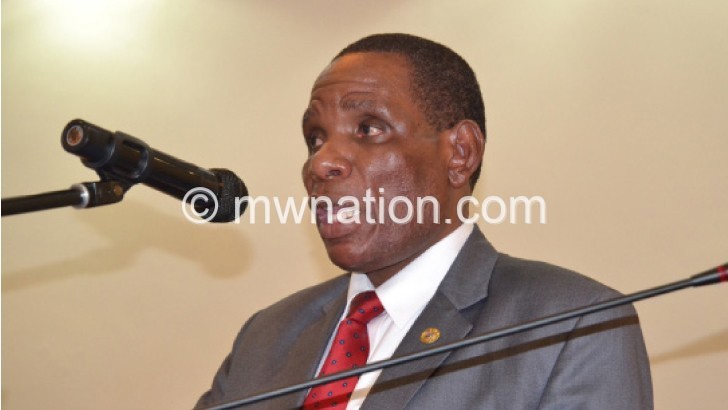Minister clears air on maize export ban
Minister of Industry, Trade and Tourism Joseph Mwanamvekha has said only commercial maize farmers are allowed to export the grain upon being issued with an export licence.
Mwanamvekha said this on Monday while presiding over the 11th meeting of the Tripartite Committee of Senior Officials in Lilongwe
He said: “Any person or farmer who wants to do so should have evidence that the maize was bought specifically for export. We are saying no to exporting maize bought from farmers who have benefitted from the Farm Input Subsidy programme [Fisp]”

“We are ready to issue a license to anybody should they grow maize specifically for commercial purposes”.
The minister added that there is no guarantee that there will be more food in the 2017/18 growing season.
However, Mwanamvekha said no single trader has been issued a licence to export maize from the ministry.
The development comes in the wake of conflicting views over the maize export ban, which some quarters argue only defeats the purpose of regional integration.
Recently, the Malawi Confederation of Chambers of Commerce and Industry (MCCCI) questioned government’s export limitations, saying it reduces the market for farmers who have the potential to export and defeats the whole purpose of regional integration.
MCCCI chief executive officer Chancellor Kaferapanjira said while it is important for the country
to be food secure at all times, setting minimum prices for produce and placing export, bans on commodities transfers revenue from farmers to consumers and vendors; thereby, removing the incentives for farmers to make independent decisions on what they produce.
In March, President Peter Mutharika ordered the deployment of Malawi Defence Force (MDF) soldiers along border posts to guard routes suspected to be used by smugglers of maize and tobacco to curb maize smuggling.
Presidential press secretary Mgeme Kalilani is on record as having said “there is a ban on exportation of maize, but some people have resorted to smuggling the maize. MDF will have to seal exit points”.
Meanwhile, Mwanamvekha has cast hopes on better markets for Malawian goods and services on the Tripartite Free Trade Area (TFTA).
“Malawi is one of the countries committed to the tripartite and would want that [the negotiations] move faster. Being a landlocked country we have a smaller market and would benefit from the tripartite” said Mwanamvekha.
Director of trade, customs and monetary affairs in the Common Market for Eastern and Southern Africa (Comesa) Francis Mangeni said trade has been booming in the tripartite region.
He said formal trade in the Comesa free trade area in particular has improved from $1.5 billion (about K1 trillion) in exports to $10 billion (about K7.3 trillion)currently with the potential for trade standing at $82.4 billion in Comesa alone.
The TFTA—which brings together members of the Comesa, Southern Africa Development Community (Sadc) and Eastern Africa Community (EAC)—represent 48 percent of the African Union membership, 51 percent of the continental gross domestic product (GDP) and a combined population of 632 million (eight percent of the world population).
The TSCO will negotiate on rules of origin, tariffs, funding and rectification, among other things, which are some of the issues delaying the adoption of the TFTA.





